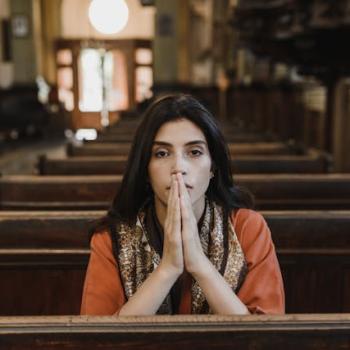Although most experts agree the odds are long, it’s hard to imagine a more transformative choice the cardinals could make than to select a nonwhite person to lead the world’s largest faith denomination, 1.2 billion strong. In the conclave that begins Tuesday, that would mean a person from the developing world, which is now home to two-thirds of all Catholics.
After centuries and centuries of white European popes, a developing-world pope could further alter the modern concept of Christianity, and by extension the modern concept and geopolitical tilt of power.
In conversations, comparisons to Barack Obama’s election as the United States’ first black president readily arise. But there is ostensibly a major difference: American presidents are picked by voters driven by pragmatic concerns, while popes — in Catholicism, God’s representatives on earth — are picked by cardinals led by the Holy Spirit.
The process, in other words, is supposed to be above earthly concerns such as race and ethnicity.
“That’s not how we do things,” bristled Mary L. Gautier, a sociologist and researcher with the church’s best-known U.S. data bank, the Center for Applied Research in the Apostolate, when asked for historical demographics on race and ethnicity within the church. There is no central repository for the data, Gautier said, and race is a social construct, anyway.
“The church has always been and considered itself a global church,” bound by its common humanity, she said.
But the reality is that the majority of the 115 cardinals are white men from Europe, where the Catholic population is decreasing, at the same time it is growing rapidly among people of color in the developing world.
Between 1910 and 2010, the percentage of Europeans who identify as Catholic decreased from 65 percent of the global Catholic population to 24 percent, according to an analysis by the Pew Research Center of data from the World Christian Database. Latin Americans climbed from 24 percent to 39 percent, and Catholics in sub-Saharan Africa went from less than 1 percent to 16 percent. Catholics from the Asia-Pacific region went from 5 percent to 12 percent of the world Catholic population, according to the Pew Research Center. . . .
The cardinals from the developing world whose names have been mentioned as potential popes include Malcolm Ranjith of Sri Lanka, Luis Antonio Tagle of the Philippines and Peter Turkson of Ghana. Even within the group of contenders, there are complicated questions of race and ethnicity. The term Hispanic refers to ethnicity, and members can be of any race, including black, indigenous, white or mixed race. For example, is Cardinal Odilo Scherer of Brazil a developing-world pope, even though his family came from Germany?
Also, in Brazil as in much of Latin America, people have not historically classified themselves neatly into racial categories.“The question Latin Americans would press would not be about race but about a non-European,” said Jose Casanova, a prominent sociologist of religion at Georgetown University, who is from Spain.
He acknowledged the sometimes tricky effort to separate these topics. “Officially, Christianity is not about these matters [such as race],” Casanova said. “But in the world those inequalities still play a role. So it is important that whoever represents the Christian message comes from the groups who are less privileged.”
But such parsing may be largely irrelevant because of a perception that developing world cardinals lack the experience for the papacy, according to many Vatican watchers.
Even though Christianity has existed throughout the world, institutional Catholicism is relatively new in places such as Africa or Asia. Until World War I, in fact, most non-European branches of the Catholic Church were considered “missionary” churches; it took the Second Vatican Council of the 1960s to encourage the idea of indigenous clergy. While the clergy has diversified slightly since then — in part because European and American men are not becoming priests as quickly — Europe still has more priests than Africa, South America and Central American combined. In the United States, only 15 percent of U.S. priests ordained last year were Hispanic, while 71 percent were white.
The real stumbling block of developing-world cardinals “is they don’t have Vatican experience at a time when they need someone who can get control of the management issues in Vatican City,” said veteran Vatican reporter John L. Allen Jr. with the National Catholic Reporter.
Allen conceded that a pope of color might trigger “a bit of a shock to the system.”
“But it was a shock when they picked someone from Poland in 1978, and from a Catholic point of view, that turned out pretty well,” he said. “I don’t think this is on the minds of the cardinals.”
The “not enough experience” argument sounds like racist code to some. Pope John Paul II, for example, had no experience in the curia, or Vatican bureaucracy. And in pockets around the world, there remains a sense of incredulousness at the notion of a pope of color. . . .
Race and ethnic background are but one consideration; politics and worship traditions are another. Some wondered about a pope coming from a very conservative culture in Africa or India, for example, where conversations about sexuality or the role of women sound different from those in the West.
Turkson shocked some when he said Africa wouldn’t likely have the clergy sex abuse issues that have exploded in the West because homosexuality “is not countenanced in our society.”














